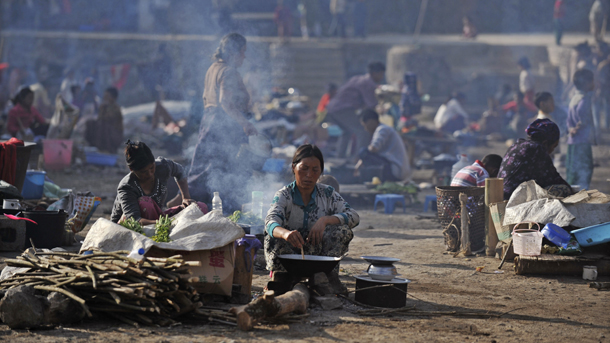RANGOON — Two brothers are still missing after disappearing over one and a half years ago from a camp for displaced people in Kachin State, and were allegedly taken by troops in the government army, a rights groups says, three years into the conflict in Burma’s far north.
The Asian Human Rights Commission (AHRC) says the brothers traveled from an IDP camp where they were staying to Palaung Dain Sar village, Mansi Township, to look after their crops on December 12, 2012. They did not return after a few days, prompting a small search party from the camp to look for them.
“They found their belongings such as clothes and the food they carried on Bwan Kyaw Mountain, four miles from the village. According to evidence on the ground, including prints left by boots and other features, they appear to have been taken into custody by government troops based in the area,” the rights groups said in a statement on Monday, the third anniversary of fighting since a 17-year ceasefire broke down between the Kachin Independence Army (KIA) and the government army in June 2011.
The brothers were Swan Kha Gan Phan and Swan Kha Naw Gyar, 45, who had a family with three children.
After their disappearance, a major in the government army, Kyaw Thu Win, told the search party that two battalions had just gone to the frontlines and had likely taken the brothers with them as guides, the rights groups said. The search party followed up later with the major but were told the battalions had not returned yet.
“The family members tried to go to the places where they assumed the military might have arrested the two men but until now they could not get any information at all,” the rights group added.
The AHRC urged the government to investigate the case of the missing brothers, determine their whereabouts and secure their release as soon as possible. The rights groups accused troops from Light Infantry Battalion 15 or Light Infantry Battalion 113 of making the arrests.
Government troops are frequently accused of detaining civilians from IDP camps to serve as guides or under suspicion that the civilians are connected to the KIA.

















